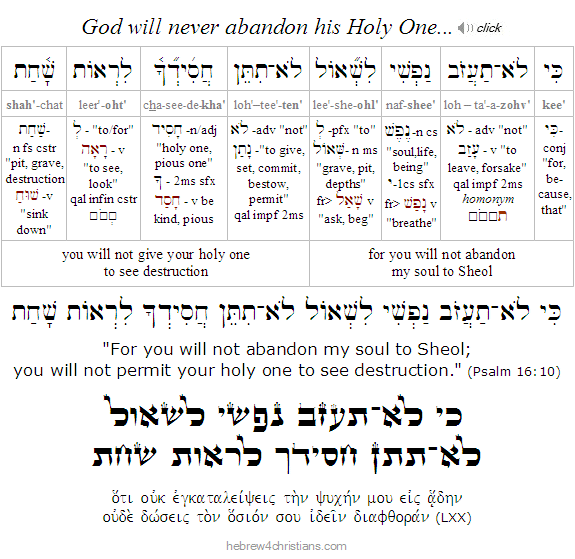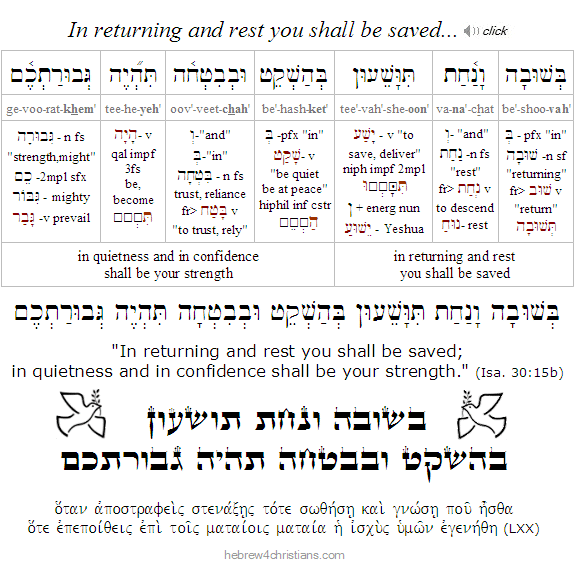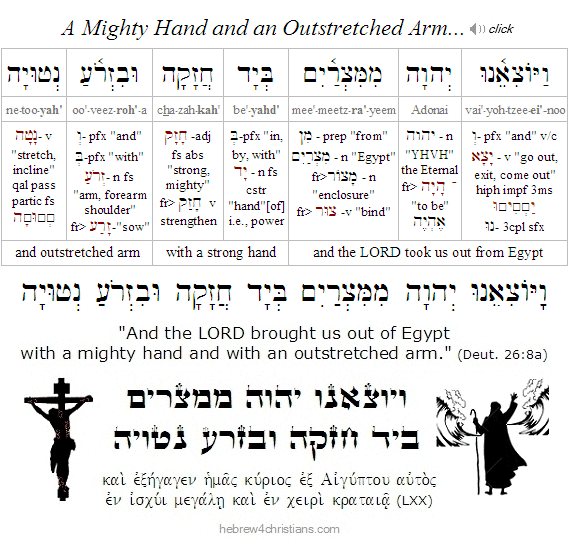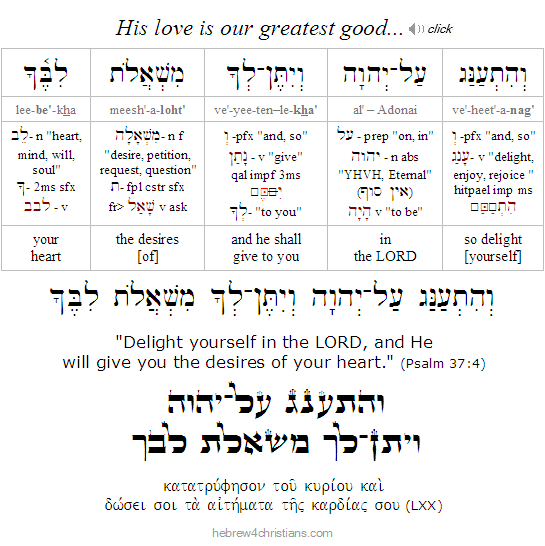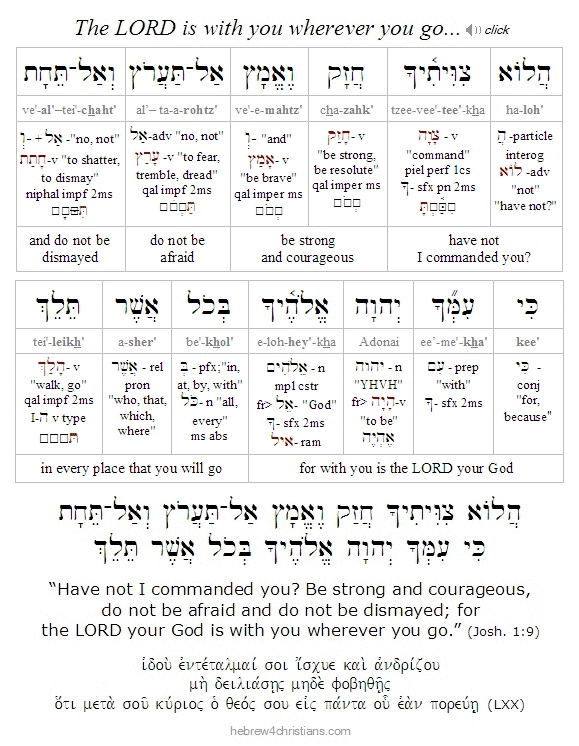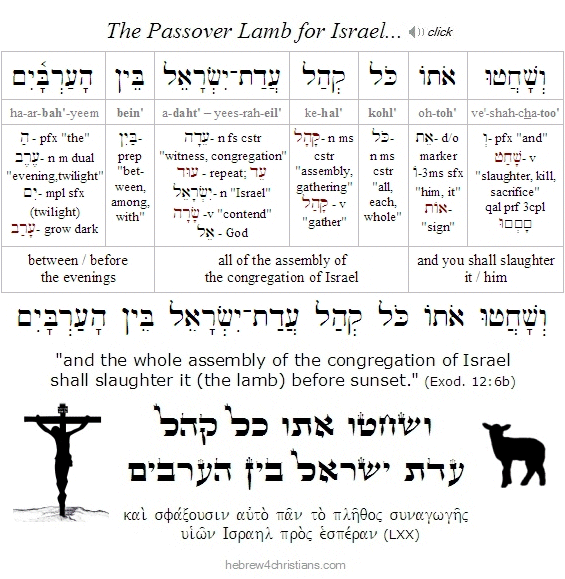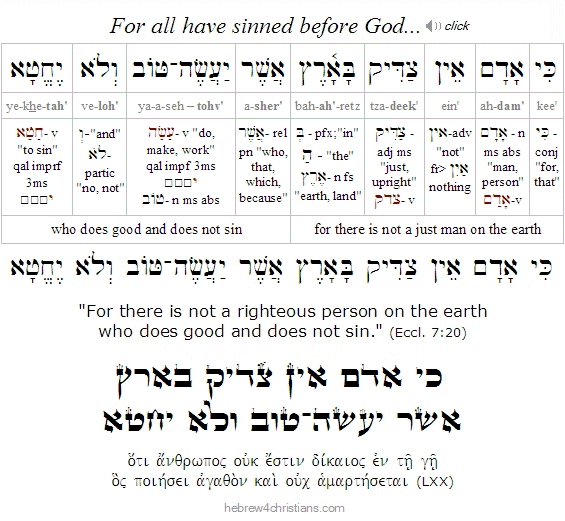|
April 2023 Updates (continued)
Note: If any page content appears to be missing, please refresh the page...
When was the Resurrection?

[ The following is related to Passover and the timing of the resurrection of Yeshua... ]
04.06.23 (Nisan 15, 5783) Every year I get asked when the resurrection of Yeshua likely occurred in relation to the date of Passover. The reason for the confusion, I think, is that the Jewish calendar is different than the secular calendar, and the date for Passover is not fixed in relation to it. To get an understanding of the issues, we must first keep in mind that the biblical "Day" (capitalized) begins at nightfall, which may seem a bit counter-intuitive. This is based on the Torah's definition of a day as the time between "evening and the morning" (עֶרֶב וָבֹקְר) repeatedly used in the account of the creation. Hence we speak of Passover as occurring just after nightfall of Nisan 15, and continuing through the night and throughout the day until the following nightfall, which then becomes Nisan 16. Remember that together the "night-day" span of time is considered a biblical "Day."
Now with this distinction carefully in mind, we can try to make sense of the time of the early Passover of Yeshua and his resurrection from the dead three nights and days later...
First, we know that Yeshua had an early seder with his disciples, because as the "Lamb of God," he would have to be sacrificed on Nisan 14, during the time the Passover lambs were slaughtered at the Temple (recall that the original Passover lamb was slaughtered and its blood daubed on the doorways before nightfall in Egypt (Exod. 12:6-7). Therefore Yeshua's seder would be on afternoon of Nisan 13 (a Wednesday), which would move into the first hours of the Nisan 14 after the seder was complete. After the seder, then, on Wednesday night, Yeshua left for the grove of Gethsemane (גת שמנים) at the foot of the Mount of Olives, where he underwent his agony, was betrayed by Judas, and was arrested (Matt. 26:30-50).
Early in early morning of Nisan 14 (i.e., Thursday morning) the "chief priests and elders" conspired to take Yeshua before Pilate to be executed (Matt. 27:1-33). Because it was the day before Passover, however, they asked Pilate to break the legs of those being crucified so that their bodies would not remain on the cross during the Passover "high Sabbath" (John 19:31). This meant that Yeshua would have to be quickly tried and judged so that he would be dead before the Passover began at nightfall... Hence the priests and elders roused the rabble to call for Yeshua's immediate condemnation, despite Pilate's objections (Mark 9-15). Yeshua was condemned to die by crucifixion sometime the late morning of Nisan 14.
Therefore on Nisan 14, from noon until three in the afternoon on Thursday, darkness covered the land, and Yeshua then cried out אֵלִי אֵלִי לָמָה עֲזַבְתָּנִי - "My God, my God, why have you forsaken me?" (Matt. 27:46). A few moments later, He died upon the cross (his legs were left unbroken because he had already died before the Roman soldiers executed the order to break the legs). At the moment of his death, however, the veil of the Temple was torn from top to bottom, there was an earthquake that shook the area, and many miracles occurred (Matt. 27:50-54). Later that afternoon, Joseph of Arimathaea asked Pilate for permission to bury the body of Yeshua before the sun would set that day (Matt. 27:57-58) .
So we see that Yeshua was crucified and died on the day before the Passover, during the afternoon of Nisan 14, which is considered a "half day" in the "three days and nights" of being in the earth before his resurrection from the dead (Matt. 12:40).
Yeshua remained in the tomb throughout the first two (full) Days of Passover, that is, from Nisan 15 (from nightfall until following nightfall on Friday) and on Nisan 16 (from nightfall until following nightfall on Saturday), and He was resurrected sometime during the night of Nisan 17, before sunrise on Sunday morning when the women at the tomb discovered the stone had been rolled away and Yeshua's body was gone (Matt 28:1; John 20:1).
So, transposing this to the secular calendar for this year, Yeshua held his early Passover seder on Nisan 13th (Wednesday), which became Nisan 14th at sundown. That night he was betrayed and arrested, and early the following morning (Thursday) he was brought to Pilate for judgment by crucifixion. He died later that afternoon, at the time of the sacrifice of the lambs at the Temple, on Nisan 14, and was buried before sundown. He was in the tomb for all of Nisan 15 and Nisan 16, and was raised from the dead sometime during the night of Nisan 17 (Saturday) -- before the women discovered the empty tomb (Sunday morning). Again, the benefit of this reckoning is that it accounts for the prophecy of Yeshua that he would be in the earth for "three days and three nights."
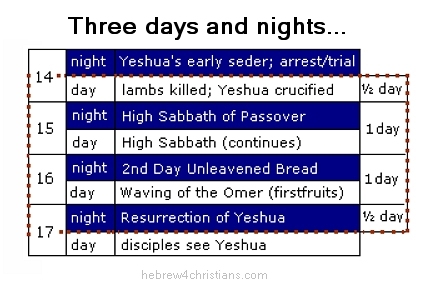 |
I realize there may be questions about this way of understanding the timing of the resurrection of Yeshua, but this account is in harmony with the basic facts of the Passover holiday and how it served as a "type" or foretelling of the death, burial, and resurrection of our LORD. Happy Passover and Yom Bikkurim, chaverim!
Hebrew Lesson
Psalm 16:10 reading (click):
Rest for your Soul...
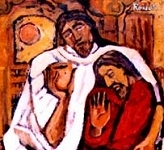
04.05.23 (Nisan 14, 5783) Yeshua says, "Come to me, all who labor and are heavy laden, and I will give you rest. Take my yoke upon you, and learn from me, for I am gentle and lowly in heart, and you will find rest for your souls" (Matt. 11:28-29). When he said, "Live in me, and I will live in you" (John 15:4), he didn't insist you first be found worthy or good; no, he set no other condition than that of trust: "Now are you clean through the word which I speak" (John 15:3). The separation is gone; God has made the way past your shame. You are invited to come, so come just as you are, come without delay, but come trusting that you are entirely welcome because of who Yeshua is and what he has done for you...
O Lord, help us to live the newness of life that you so graciously offer to us.... help us to come to you and receive your rest. Amen.
Hebrew Lesson
Isa. 30:15b reading (click):
Retelling the Story...
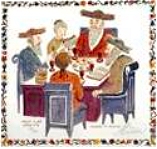
[ Passover begins this evening at sundown. "In every generation, each of us is obligated to see himself or herself as though he or she personally came forth from Egypt."- Traditional Hagadah ]
04.05.23 (Nisan 14, 5783) Concerning the observance of the Passover Seder the Torah states, "When your child asks you in time to come, 'What is the meaning of the testimonies and the statutes and the rules that the LORD our God has commanded you?' then you shall say, 'We were slaves (עבדים היינו) to Pharaoh in Egypt, but the LORD brought us out of Egypt with a mighty hand. And the LORD showed signs and wonders, great and grievous, against Egypt and against Pharaoh and all his household, before our eyes" (Deut. 6:20-23). We are instructed to "remember what the LORD your God did to Pharaoh and to all Egypt, the great trials that your eyes saw, the signs, the wonders, the mighty hand, and the outstretched arm, by which the LORD your God brought you out" (Deut. 7:19). As it is written in the Shema, "You shall teach them diligently to your children," we ask, what do we teach? And we answer: Kulo! Everything – the whole story of our deliverance (הסיפור המלא).
The early sages taught that Hebrew word "Pesach" (פסח) can be read as peh (פֶּה), "mouth," and sach (סַח), "speaks," indicating that Passover is a confession of the truth of God's redemption, testifying to the truth of the LORD's faithful love. On Pesach we thank God for the revelation and the wonder of the great Lamb of God that was slain... Indeed, in light of the truth of the Scriptures - both in the Torah, the writings, the prophets, and the New Covenant Scriptures - how is it possible to honor the LORD God of Israel and to celebrate his redemption apart from the Messiah who came to earth to die as the great Lamb of God? Yeshua is the heart and central meaning of the Passover, and there is simply NO valid Passover Seder apart from the blood of the Lamb (Heb. 2:3; Heb 10:28-29).
Hebrew Lesson
Deuteronomy 26:8a reading (click):
Related Topics:
Finding your Greatest Good...
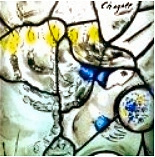
04.04.23 (Nisan 13, 5783) The heart (הלב) is the center of the will - the locus of desire, affection, and love... However, the heart itself must be constrained by wisdom (חוכמה), since unbridled desire is slavery to the lower nature (יצר הרע), as it says: "The righteousness of the upright will deliver them, but the faithless will be ensnared by their own desires" (Prov. 11:6). The problem for many of us is having "disordered loves," that is, serving various idols of the heart that demand our attention yet divert us from what we really need. The difficultly is not so much that we indulge in lesser loves as much as we do not know the love of God that heals us and sets us free. As C.S. Lewis once said, "God cannot give us a happiness and peace apart from Himself, because it is not there. There is no such thing" (Mere Christianity). The righteous have found the most precious secret: "I shall behold your face in righteousness; when I awake, I shall be satisfied with your likeness" (Psalm 17:15).
It has been said that "there is nothing so whole as a broken heart." We become whole when we discover that the idols of our hearts do not truly satisfy us. Usually this involves a "severe mercy" as we learn that what we thought we "needed" proved to be just another illusion... Then and only then can we begin to believe in and to accept God's love as our highest good. Such "perfect love" casts out the fear induced by the idols of the heart. When we seek first the kingdom of God and His righteousness, the passions of our heart are ordered correctly. As it is also written in our Scriptures: "Delight yourself in the LORD, and he shall give you the desires of your heart. Commit your way to the LORD; trust also in him, and he will bring it to pass. And He shall bring forth your righteousness as the light, and your judgment as the noonday" (Psalm 37:4-6).
The Lord is near to the shavur lev (שבור לב), the one with a broken heart. The Hebrew word "lev" (לב) metaphorically refers to our inner life, that is, our affections, mind, and will. This is revealed in the letters of the Hebrew word itself: the Lamed (ל) depicts a "staff" used to direct something (i.e., the will), and the Bet (בּ) depicts the "house" of the physical body. Lev then represents our inner life of thought and feeling expressed in our actions. Those who are broken in heart – the nishberei lev (נִשְׁבְּרֵי־לֵב) – have discovered that they cannot control their own lives, that they are inwardly "shattered," and therefore they need divine help. Contrary to conventional wisdom, God helps those who cannot help themselves; He prefers to use broken vessels in His service (Psalm 51:19). As A.W. Tozer observed: "Beware of any Christian leader who does not walk with a limp."
Yeshua taught, "Blessed are the pure in heart, for they shall see God" (Matt. 5:8). As I've mentioned before, the Greek word translated "pure" is katharos (καθαρός), sometimes used describe the cleansing of a wound (catharsis), or to describe the unalloyed quality of a substance revealed through refining fire. Metaphorically, then, purity of heart refers to separation from the profane - singleness of vision, wholeheartedness, passion, and focused desire for the sacred. Faith is a great trembling of love: "With this ring I do worship thee..." As we center our affections on Yeshua, we become pure in heart -- i.e., unified, made whole, and healed of our inner fragmentation. We see the Lord both in this world, through his effects, and then panim el panim (פָּנִים אֶל־פָּנִים), "face to face," in the world to come. Our hope purifies us for that coming great day of full disclosure (1 John 3:2-3; Heb. 12:14). That day is surely drawing near, friends.
Hebrew Lesson
Psalm 37:4 reading (click):
Faith Establishes the Law...
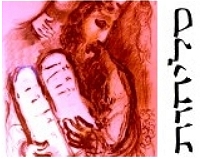
04.04.23 (Nisan 13, 5783) We read in the New Testament: "Do we then make void (i.e., καταργέω, "idle," "deactivate") the law of God through faith? Certainly not! On the contrary, we establish (i.e., ἵστημι, "make stand," "uphold") the law" (Rom. 3:31). How so? We establish the truth of law on the basis of our faith in God's righteousness, not our own. Unlike those who attempt to establish their own righteousness by means of "keeping the law," we confess our inability to do so and throw ourselves upon the gracious provision God supplies for our atonement at the cross. The law teaches us our need for the Savior. We are not saved by keeping the law, but that does not mean that we should disregard the truth of the law, nor fail to appreciate the One who kept the law on our behalf -- and then bore its verdict for our sin in his sacrificial death (Gal. 3:13).
Yeshua told us that He did not come to do away with the law, but to express its goal. He said: "Do not think that I came to destroy the Law or the Prophets. I did not come to destroy but to fulfill. For assuredly, I say to you, till heaven and earth pass away, one jot or one tittle will by no means pass from the law till all is fulfilled. Whoever therefore breaks one of the least of these commandments, and teaches men so, shall be called least in the kingdom of heaven; but whoever does and teaches them, he shall be called great in the kingdom of heaven. For I say to you, that unless your righteousness exceeds the righteousness of the scribes and Pharisees, you will by no means enter the kingdom of heaven" (Matt. 5:17-20). Heaven and earth have not yet passed away, and therefore the Torah retains its voice in our lives. Again, this is not to say that we attain righteousness by means of the law but by the work of the righteousness of God given to us by faith in Yeshua our Savior. Indeed only those who believe in Yeshua fully uphold the truth of the Torah and affirm the need for sacrificial atonement for sin (Lev. 17:11); they do not mitigate the verdict of the law nor explain away the need for sacrificial blood atonement as the rabbis do (Deut. 27:9-28:68). They love the law, for the Spirit writes it upon the tables of their heart (Jer. 31:31-33).
The meaning of the cross is understood in light of judgments of the law - and God's passion to deliver us from spiritual death - for God's truth and mercy are reconciled only there (Psalm 85:10). There is no need for the cross apart from the law, and there is no remedy for the law's verdict apart from God's mercy. "If you love me," says Yeshua, "keep my commandments." The love of God is the fulfillment of the law (Rom. 13:8-10; Gal. 5:14; James 2:8). Blessed are those that love the law of God and meditate on its truth (Psalm 1:1-3).
Hebrew Lesson:
Psalm 119:97 reading (click):
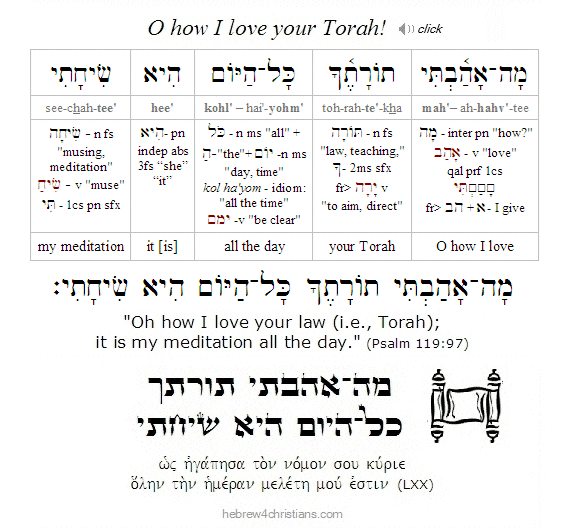 |
Is Passover for Today?

[ "For Christ our Passover is sacrificed for us; therefore let us keep the feast" (1 Cor. 5:7-8). ]
04.04.23 (Nisan 13, 5783) Some well-meaning Christians think that followers of Yeshua have no reason to do a Passover seder as instructed in the Torah because, in light of the new covenant, all that is now needed is to remember Jesus' crucifixion for our sins and to celebrate his resurrection by partaking in the sacraments. This viewpoint assumes that, despite the instructions in the Torah, the yearly Passover service, or seder, is not intended for Christians, since it focuses on the Exodus from Egypt and the Jewish people, and the message of the gospel is universal, for every "tongue and tribe." Moreover Christians are no longer "under the law" and therefore are not obligated to keep the various ordinances of the "Old Testament," especially with regard its ceremonial laws.
There are some real difficulties when we disregard the Torah's instructions to observe the Passover, however, particularly because Yeshua himself identified his entire ministry as the "Lamb of God" who redeems us from the curse of the law, and he used the message of the Passover to teach his followers this truth. Bear in mind that the idea of the Passover was not enacted at Sinai as part of the Sinai covenant, but predates the giving of the law. In other words, the faithful of Israel obeyed God's instruction to take refuge under the blood of the sacrificed lamb to escape the plague of death delivered upon Egypt, but this was done before Moses ascended Sinai to receive and ratify the covenant of the law.
Indeed the theme and message of Passover is timeless for understanding the Bible. The message was delivered in the Garden of Eden when God sacrificed a lamb to cover the shame of Adam and Eve (Gen. 3:21); it was prefigured in the lamb that was sacrificed by Abraham in place of Isaac during the Akedah; it was portrayed in the blood of lamb sacrificed in Egypt whose blood was daubed upon the doorposts; it was memorialized every day and night at the Tabernacle (and later at the Temple) as "continual korban," the offering of which was central to the sacrificial ministrations for Israel; it was foretold by the Hebrew prophets (Isa. 9:6; Isa. 53; Psalm 22:16; Prov. 30:4; Zech. 12:10. etc.), and it was fully manifested in the incarnation, mission, and sacrifice of God's beloved Son himself, the promised heir to come who allowed himself to be "caught in the thicket" for our sins, and who was bound upon the altar of the cross to shed his blood for our redemption. This was the central meaning of the "greater exodus" that Yeshua discussed with Moses and Elijah on the mount of transfiguration before his crucifixion (see Luke 9:29-31). Amen, Yeshua as our sacrificial Lamb is heart of the gospel message itself (John 1:29; 1 Pet. 1:19; Isa. 53:3-12); it's the "scarlet thread" he showed his followers (Luke 24:27); it's the Metaphor God chose to make his sacrificial love known to us.
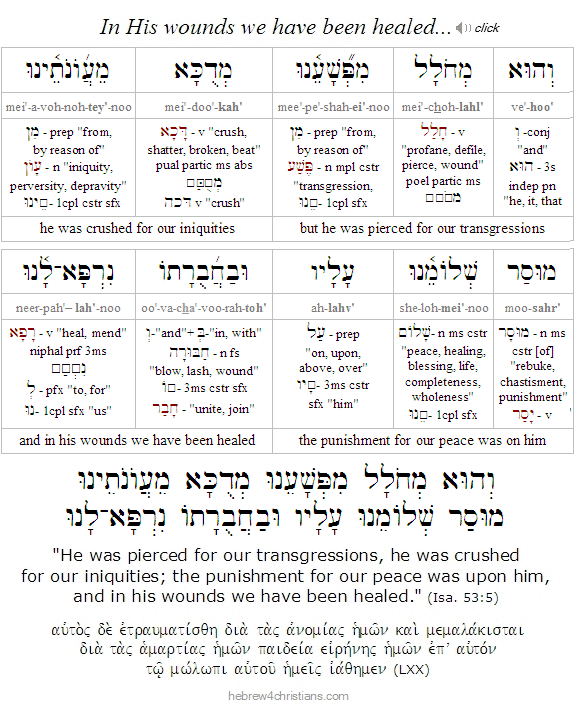 |
The image of "Christ our Passover Lamb" (המשיח פסח שלנו) will extend forever and unto eternity itself, when the Lamb of God is fully glorified and enthroned, as it says: "For the Lamb on the throne will be their Shepherd. He will lead them to springs of life-giving water. And God will wipe every tear from their eyes" (Rev. 7:17). "And the city has no need of sun or moon, for the glory of God illuminates the city, and the Lamb is its light" (Rev. 21:23).
The meaning and substance of Passover, then, is essential to the life of the Christian, and to dismiss its significance is to risk missing the point of God's redemption and salvation itself. The Apostle Paul used "Passover language" to describe our new life in Messiah by admonishing us to: "purge out the old leaven, that you may be a new lump, since you truly are unleavened. For indeed Christ, our Passover, was sacrificed for us. Therefore let us keep the feast, not with old leaven, nor with the leaven of malice and wickedness, but with the unleavened bread of sincerity and truth" (1 Cor. 5:7-8).
The LORD did not waste his breath by revealing the Torah to Israel, nor did he speak out of two sides of his mouth when he instructed them to keep the Passover holiday every year (Num. 9:2,14; Lev. 23:5; Deut. 16:1). Remember - Jesus was the Voice of God speaking to Israel at Sinai; Jesus was Moses' Teacher regarding the seven holidays of the Torah! He said "Do not think that I came to destroy the Law or the Prophets. I did not come to destroy but to fulfill. For assuredly, I say to you, till heaven and earth pass away, one jot or one tittle will by no means pass from the law till all is fulfilled. Whoever therefore breaks one of the least of these commandments, and teaches men so, shall be called least in the kingdom of heaven; but whoever does and teaches them, he shall be called great in the kingdom of heaven" (Matt. 5:17-19). Heaven and earth has not yet passed away, and therefore the Torah has its voice and place in the life of follower of Yeshua. Faith does not mean we are devoid of law of God, even if the verdict of the law reveals our sin. As the Apostle Paul said, "Do we then make void the law through faith? Certainly not! On the contrary, we establish the law" (Rom. 3:31). We are justified by trusting in the righteousness of God in the sacrifice of Yeshua, but that does not mean we disregard God's law so that "grace may abound" (Rom. 6:1-2)
So you see that the question of whether Christians should seriously engage the Passover turns on how they read the Scriptures, and in particular, how they esteem the words of the Torah. If they tend to read the Bible out of context, by focusing on the New Testament without taking time to carefully consider the context given in the Hebrew Scriptures, they likely will dismiss the significance of the Passover seder and will think of it in theologically abstract terms, as an analogy or metaphor foretelling what Yeshua has done, and that it is now best remembered during communion rituals, rather than as an invitation to participate in the annual retelling of the great story of redemption that is the heritage of the people of God. But Yeshua himself observed the Passover with his disciples, and indeed his last Passover before his crucifixion represented his most intimate heart to us. We miss a lot if we minimize the significance of the Passover or regard it as somehow incidental to our life as believers in the great Lamb of God. Chaverim -- let us keep the feast! Shalom lekha.
 |
 |
Taking Passover Personally...
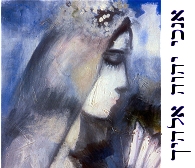
[ The great holiday of Passover begins Wednesday evening at sundown... ]
04.04.23 (Nisan 13, 5783) The message of Passover applies to each of us: "In each and every generation an individual should look upon him or herself as if he or she (personally) had left Egypt." Indeed the very First Commandment is to accept the reality of your personal deliverance by the LORD: "I am the LORD your God, who brought you (singular) out of the land of Egypt, out of the house of slavery" (Exod. 20:2).
Note that the Hebrew word "Egypt" is mitzraim (מצרים), a word that means "prison, enclosure, or straights," from the verb tzur (צוּר) meaning "to bind or confine" (the Yiddish word tsuris, "trouble," comes from the same root). On the other hand, the Hebrew word for salvation is yeshuah (ישועה), from a root that means to "make wide," to "release from constraint," to deliver or set free.
It is noteworthy that God began the Ten Commandments by identifying Himself as our Redeemer and Deliverer rather than as our Creator, because the very purpose of creation is to be set free by means of God's redemptive love given through Yeshua, the "Lamb slain from the foundation of the world" (Rev. 13:8; 1 Pet. 1:18-20; Eph. 1:4; 2 Tim. 1:9). Amen. The book of Genesis is the context to the story of the Exodus. Happy Passover, friends...
Hebrew Lesson
Exodus 20:2 reading (click):
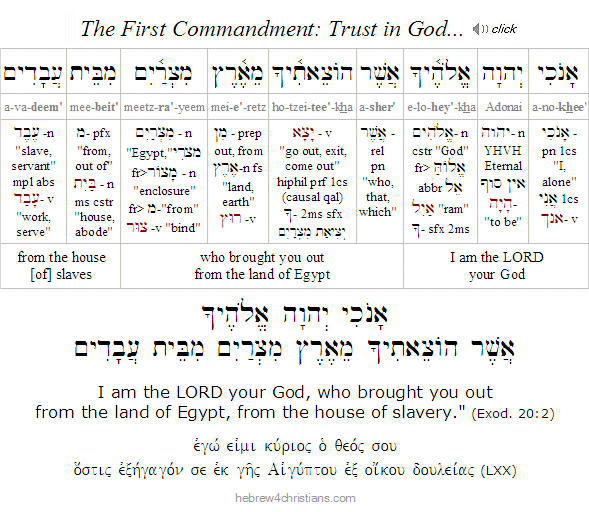 |
The Exodus for Today...
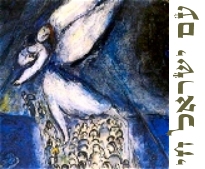
[ "The LORD is a warrior; the LORD is His Name" / יהוה אִישׁ מִלְחָמָה יהוה שְׁמו (Exod. 15:3). ]
04.03.23 (Nisan 12, 5783) An old midrash says that at the time of the great Exodus, only a remnant of Israel was actually saved while all the others died in the makkah (plague) of darkness, having fallen so low that they could not believe in the redemption or even want to be redeemed (Rom. 9:27-28)... How dreadful; how tragic! God forbid that we should give up our hope now, chaverim, especially because of the great salvation Yeshua secured for us at the cross (Heb. 2:3-4; Heb. 6:4-6). בכל דור ודור -- be'chol dor vador -- "in each and every generation" an individual should look upon him or herself as if he or she (personally) had been rescued from the "Egypt" of this world...
And yet divine history is somewhat "cyclical" in its expression. The closer we go back to the beginning, the more we see how the future was "seeded" and gets replayed in every generation. Both the Tree of Life (עֵץ הַחַיִּים) and the Tree of the Knowledge of Good and Evil (עֵץ הַדַּעַת טוֹב וָרָע) were present in the original paradise (Gen. 2:9). When Eve listened to the lies of the nachash (serpent) and regarded the forbidden tree as "desirable to make one wise," she immediately began her descent into exile. At the very dawn of human history, then, we see that "truth" (אֱמֶת) apart from God (א) leads to death (מֵת).
Adam and Eve's disobedience led to God's gracious promise regarding the coming "Seed" who would restore all things by being victorious in the war for truth (Gen. 3:15). Of course, this promised Seed was Yeshua, our Suffering Servant and "Second Adam," who, through His sacrifice upon the cross, "reversed the curse" and reconciled humanity with God. Note, however, that this "proto-gospel" message also implied perpetual warfare between the heirs of the Messiah (called the "children of light") and the heirs of Satan (called the "children of darkness"). The ongoing enmity between these "two seeds," then, was ultimately something God willed (1 Thess. 5:5; Col. 1:13; 1 John 3:10). The children of light are called to be am kadosh - a holy people - separate from the evil engendered by the fallen world and its forces, just as the very first creative expression of God was the separation of light from darkness (Gen. 1:3-4). The children of light "hate evil and love the good," and conversely, the children of darkness "hate the good and love evil" (Psalm 34:21, Prov. 8:13, Amos 5:15). The Exodus story, then, is not so much a matter of ancient history as it is a present revelation of God's righteous liberating power over the powers of darkness.
God delivered Israel with a "strong hand" (בְיָד חֲזָקָה) and led them directly to Mount Sinai to re-encounter the Tree of the Knowledge of good and evil, just as the Cross of Yeshua is the Tree of Life in the midst of the Garden of God. Life is about spiritual warfare, and the power encounter between God and Pharaoh is a paradigm for the ages. Therefore Yeshua refered to his own sacrificial death as the great Lamb of God to be the final exodus (Luke 9:31).
Throughout history we see the repeated attempt to resuscitate or revive ancient "Ra worship" (which derives from Satan in the garden). Every culture has its emissaries of evil -- its "pharaohs," its political dynasties, its caste systems, and its presumed sense of status quo. In the ancient world, most political figures were literally deified; in the Middle Ages, they were thought to rule through "divine right"; but in today's secular world, there is no justification given for their control other than through deception and the naked "will to power." In nearly every case, however, it can be stated that politicians and leaders of this world represent what is most sick about the human condition. Politicians and princlings are given "their hour" in this earth, and they are undoubtedly groomed by the "god of this world" who was a murderer and a liar "from the beginning" (John 8:44). The dust and ashes of countless past civilizations and regimes attest to this truth...
Today we are living in a world that is "globalist" by design. Politicians are often unwitting lackeys for the darker powers seeking to consolidate power to enslave the whole earth. The so-called global economy and its system of usury is the mechanism that will give rise of yet another "Pharaoh" who likewise will be judged by the LORD God Almighty at the End of Days.
Many people live in a state of fear because they believe the lies and propaganda of "the lords of the darkness of this world" / τοὺς κοσμοκράτορας τοῦ σκότους τούτου (Eph. 6:12). Satan's power always has been through the use of deception. If he can get you to believe a lie, he will begin to control you through fear. This is how the devil has always gained the kingdoms of this world -- through deception and violence... As followers of Yeshua, we must always keep in mind that reality centers on the LORD God of Israel and never in the "rhetorical violence" and metaphysical fantasies of political or media figures.
The LORD God of Israel truly cares about people's liberation from deception and oppression. The story of the Exodus is His everlasting rebuke to all the world's dictators and should cause every politician to soberly assess their fate... The time is coming when His judgment will fall upon all the "kings of the earth who take counsel against the LORD and against His Anointed One" (Psalm 2:2). Halevai, ad ana Adonai?
Presently we are living with the tension of the "already-not-yet" aspect of the original prophecy that "he (the Messiah) will crush the head (of the serpent)." Satan still appears to have the upper hand, at least in the temporal realm. Final victory is not yet here, even if it is assured through the promises of God (Rom. 16:20). And while the time appointed by God for the Messianic redemption of Israel and the "End of Days" is a heavenly kept secret (Mark 13:32), there are certain signs called chevlei mashiach (חֶבְלֵי מָשִׁיחַ) - the "birth pangs" of the Messiah - that indicate that the time is imminent when this world (κόσμος) will be judged.
Most of these birth pangs indicate peril and danger, including "distress of nations in perplexity because of the roaring of the sea and the waves," and "men's hearts failing them for fear, with foreboding of what is coming on the earth" (Luke 21:25-6). In addition, the moral depravity of mankind will be unmasked, showing us clearly that "men shall be lovers of their own selves, covetous, boasters, proud, blasphemers, disobedient to parents, unthankful, unholy, without natural affection, trucebreakers, false accusers, incontinent, fierce, despisers of those that are good, traitors, heady, highminded, lovers of pleasures more than lovers of God; having a form of godliness, but denying the power thereof" (2 Tim. 3:2-3). The increase in "globalism" and the unholy urge to unify the world into a new type of "Babylon" will give the Messiah of Evil his coming political platform in the days ahead. So-called "political correctness," that is, social coercion based on godless consensus, is the perverse ethos of our time.
We must hold to the truth that "all things work together for good to them that love God" (Rom. 8:28), and we must also take hold of the command given to Joshua: "Be strong and of good courage!" Just as Joshua was promised that the LORD would be with him as he went in to possess the land, so we must remember that the LORD has promised never to leave us nor forsake us (Heb. 13:5; Matt. 28:20) - even in the midst of tribulation, or distress, or persecution, or famine, or nakedness, or danger, or sword (Rom. 8:35).
We do not need to live in fear, because melo khol ha'aretz kevodo: מְלא כָל־הָאָרֶץ כְּבוֹדו, "the whole earth is filled with God's glory (Isa. 6:3). Amen: "In God have I put my trust: I will not be afraid: What man can do unto me?" (Psalm 56:1). Passover is all about the victory of God over the powers of darkness for the sake of our deliverance (i.e., yeshuah: יְשׁוּעָה). The echo of Moses' cry, "Let my people go!" is still resounding in the heavenly realms. So be encouraged, chaverim, even in the face of evil. Do not be afraid and do not be dismayed, "for the LORD your God is with you wherever you go." Amen!
Hebrew Lesson
Joshua 1:9 Hebrew reading (click for audio):
The Sign of Life...
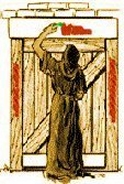
[ The holiday of Passover begins this Wednesday evening, April 5th, at sundown... ]
04.03.23 (Nisan 12, 5783) "The blood shall be a sign for you, and when I see the blood, I will pass over you (פָסַחְתִּי) that no plague will befall you to destroy you..." (Exod. 12:13). The blood would be a sign for the eye of faith, i.e., "for you," and not for the unbelieving world at large. During the afternoon of the 14th, the korban Pesach (Passover lamb) was slaughtered and its blood smeared on all three sides of the doorframe, top, right and left, in the form of the letter Chet (ח). This letter is connected with the word chai (חי), "alive," and chayim (חיים), "life," signifying that atoning life is in the sacrificial blood (Lev. 17:11).
Note that the letters of the Name YHVH (יהוה) - the Name of Divine Compassion - were said to be daubed on the doorposts: The Yod (י) was written on the top beam, the Vav (ו) on the right doorpost, and the Hey (ה) on the left. And since Yeshua is indeed YHVH, his Name was the sign of life written by the faithful. Amen, the Hebrew word for "sign" is ot (את), referring to the One who is the Alef (א) and Tav (ת), the First and the Last, the Almighty (Rev. 1:8).
Hebrew Lesson
Exod. 12:13b Hebrew reading (click):
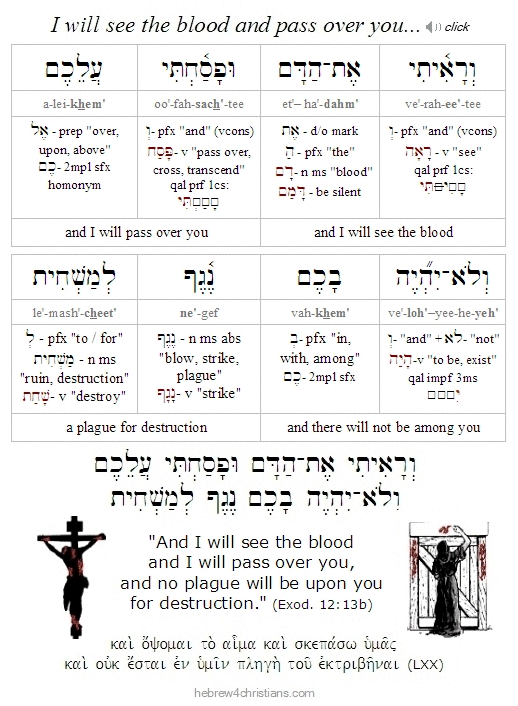 |
"The" Question of Passover...
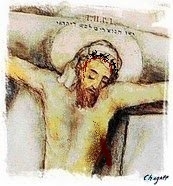
04.03.23 (Nisan 12, 5783) During the Passover Seder we begin our retelling the story of the Exodus when the question is sung: "Mah nishtanah ha-lailah ha-zeh mikol ha-leilot?" - What makes this night differ from all other nights? This is "the" central question of Passover, asked for thousands of years, and the answer is always the same: Avadim Hayinu: "We were slaves, but God redeemed us from bondage by the blood of the lamb (דַּם הַשֶּׂה)."
In this connection note that there were not many lambs, but the LORD told Israel: "You shall keep it [i.e., the Passover lamb] until the fourteenth day of this month, when the whole assembly of the congregation of Israel shall slaughter him (את) at twilight (Exod. 12:6). Each family put their trust in God's uniquely appointed sacrifice to be delivered from the plague of death (מכת המוות). There is no Passover apart from the blood of the Lamb of God....
Hebrew Lesson
Exod. 12:6b reading (click for audio):
Passover Torah Readings...
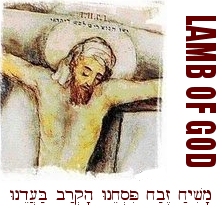
04.02.23 (Nisan 11, 5783) Shavuah tov, chaverim! We are getting very close to the central holiday of Passover, which begins this coming Wednesday at sundown.... Note that the weekly Torah Reading cycle is suspended for the holiday week of Unleavened Bread (called "Passover Week" in the Jewish tradition), with each day of the week (from Nisan 15 through Nisan 22) assigned additional readings from the Torah and Haftarah.
Unlike Western Christian tradition that followed the dictates of Emperor Constantine who oversaw the Council of Nicaea (325 A.D.) and decreed that "Easter" must be observed on the first Sunday following the first full moon after the spring equinox (March 21), the early Messianic believers in Yeshua followed the Jewish calendar by observing Passover on Nisan 14 as clearly prescribed in the Torah (see Exod. 12:18; Lev. 23:5; Num. 9:4-5; Num. 28:16; Josh. 5:10), with the resurrection occurring three days later, on Nisan 17 (Yom Bikkurim).
For more information about the specific Torah readings for Passover, see "Weekly Torah Readings" page on the Hebrew for Christians web site.
Hebrew Lesson
Leviticus 23:5 reading (click for audio):
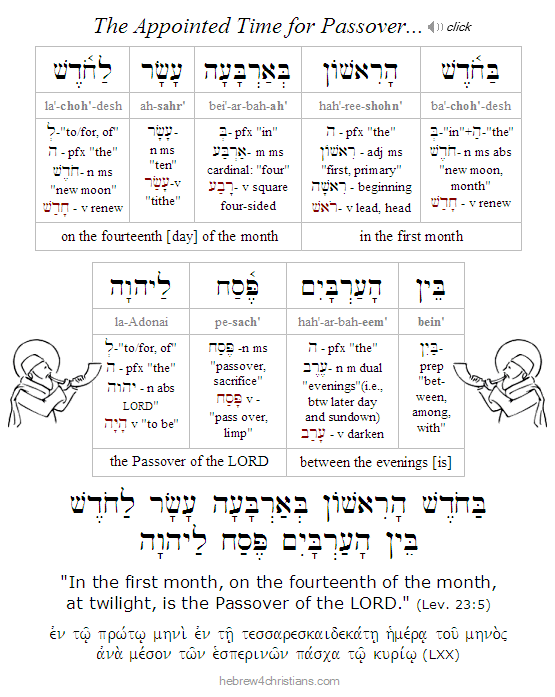 |
Passover and Teshuvah...
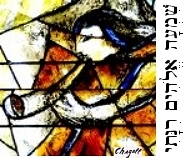
04.02.23 (Nisan 11, 5783) Since we are at the outset of a new year, it is an opportune time to reflect on the direction of our lives... The Scriptures say: "As a person thinks in his heart, so is he" (Prov. 23:7). Consider for a moment how your thinking defines your inner reality and the quality of your spiritual life. Thinking is inextricably linked to faith, and therefore we are responsible not only for what we believe, but for how we think (Acts 17:30-31). Sinful thinking creates "negative energy" that brings pain to yourself and others. Left unchallenged, such impaired cognitive function leads to slavery of the mind, hopeless addictions of thought, and distressing captivity. The first step to freedom is to confess our sin, acknowledging the reality of our own negativity – and bringing that truth to the light. Therefore teshuvah – turning to God – involves cheshbon hanefesh (חֶשְׁבּוֹן הַנֶּפֶשׁ), accounting for our soul and yielding it to the love of God for rectification: "If we confess our sins, he is faithful and just to forgive us our sins and to cleanse us from all unrighteousness" (1 John 1:9). For freedom we have been set free, and that means freedom from the power of the lie. If we deny our own sin, we cannot confess the truth to find lasting healing (James 5:16).
May the LORD prepare our hearts for this season of our lives...
Hebrew Lesson
Eccl. 7:20 Hebrew reading (click):
<< Return
|














